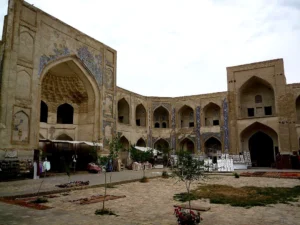Separation and Sacrifice: The Pain of December 16 in Pakistan

December 16 marks one of the most solemn days in Pakistan’s history, a day forever etched in the collective memory of the nation. It stands as a grim reminder of two harrowing tragedies—both different in nature yet equally devastating. On December 16, 1971, Pakistan faced the painful separation of East Pakistan, now Bangladesh, and on the same date in 2014, the nation was shaken to its core by the heinous attack on the Army Public School (APS) in Peshawar, which claimed the lives of 149 people, including 132 children. These events, separated by decades, continue to haunt Pakistanis, demanding reflection, accountability, and lessons for the future.
The fall of Dhaka in 1971 was not a sudden event; it was the result of political mismanagement, lack of inclusivity, and the inability to bridge growing regional and ethnic divides. The seeds of discontent were sown over years of neglect and mistrust, culminating in a brutal conflict fueled by external interference. While the military surrender at Dhaka remains a wound which may never be healed. The real tragedy lies in the disintegration of unity and the loss of what could have been a shared future. This event underscores the importance of equitable governance, justice, and respect for diversity.
The Qur’an and Hadith emphasize the importance of self-reflection, repentance, and learning from one’s mistakes as a means of personal and spiritual growth. The Qur’an encourages believers to seek forgiveness for their errors and amend their behavior, as seen in verses like, “And those who, when they commit an indecency or wrong themselves, remember Allah and seek forgiveness for their sins…” (Surah Al-Imran, 3:135). The Hadith further underscores this principle, with the Prophet Muhammad (PBUH) teaching that all humans err, but the best are those who repent and strive for improvement (Sunan Ibn Majah, 4251). Islam views mistakes as opportunities to develop humility, gain wisdom, and strengthen one’s faith through sincere effort to avoid repeating them. This perspective fosters resilience and personal accountability, aligning human actions with divine guidance.
Yet, even decades later, there are aspects of this chapter that remain shrouded in secrecy. Understanding and acknowledging the full truth behind the events of 1971 could help Pakistan learn from its mistakes and build a more inclusive and resilient nation.
Fast forward to December 16, 2014, and Pakistan faced another heart-wrenching moment. The APS massacre exposed the barbarity of terrorism in its most horrifying form. Innocent children, the future of the nation, were targeted in an act of pure evil that shocked the world. This attack was not merely an assault on individuals; it was an attack on the very fabric of society. The massacre ignited a national resolve to eradicate terrorism, leading to the implementation of the National Action Plan (NAP) and a significant military offensive. However, as the years pass, questions linger about the sustained implementation of these measures and the commitment to preventing such tragedies in the future.
In both of these tragedies, the enemies were internal or external, but they left no stone unturned to harm this country and its people. The separation of East Pakistan was fueled by both internal discord and external exploitation, while the APS attack demonstrated the cruelty of those who seek to destabilize Pakistan by targeting its most vulnerable. These incidents highlight the need for constant vigilance, unity, and proactive measures to protect the country from such adversaries.
Both incidents brought immeasurable grief and highlighted the heavy price of division, extremism, and unresolved conflicts. Yet, they also posed a vital question: have we truly learned from these tragedies? The separation of East Pakistan was a stark reminder of the importance of unity, justice, and political prudence. The APS attack emphasized the need for a zero-tolerance approach to extremism and a commitment to safeguarding the lives of the most vulnerable members of society. While efforts have been made, such as counter-terrorism measures and initiatives for regional cooperation, there remains much to be done in addressing the root causes that lead to such catastrophes.
Another shared aspect of these tragedies is the lack of full transparency. While the Hamoodur Rehman Commission Report attempted to shed light on the events of 1971, much of it remained classified for years, leaving gaps in public understanding. Similarly, despite numerous investigations, the complete truth behind the APS attack, particularly in terms of lapses in security and intelligence, remains elusive. In both cases, the absence of full disclosure has hindered the nation’s ability to move forward with clarity and purpose.
The lessons from December 16 are manifold. First and foremost, there is an urgent need for introspection. Whether it is ensuring that all regions of Pakistan feel equally represented or fostering an environment where extremism finds no foothold, the path forward demands unity and vigilance. Political stability, economic inclusivity, and a commitment to the rule of law are crucial. For decades, the mistakes of the past have been repeated due to a lack of accountability and long-term planning. Both the events of 1971 and 2014 demonstrate the devastating consequences of ignoring warning signs and failing to act decisively.
Moreover, education plays a pivotal role. The APS tragedy was an attack on education itself, a stark reminder of the transformative power of knowledge and the threat it poses to those who seek to perpetuate ignorance and extremism. A renewed focus on education, one that emphasizes critical thinking, tolerance, and national cohesion, is vital in ensuring that future generations grow up with the tools to confront challenges with resilience and unity.
Another critical lesson lies in the need for an unwavering commitment to justice. Whether it is addressing the grievances that lead to political or regional unrest or ensuring swift and effective responses to acts of terror, justice must remain a cornerstone of the nation’s policies. This includes holding those responsible for past mistakes accountable and taking steps to prevent their recurrence.
As Pakistan reflects on December 16, it must do so with a sense of purpose. This day is not only a reminder of what was lost but also a call to action for what must be achieved. The pain and grief associated with this date should serve as a catalyst for change—a change that ensures unity, security, and prosperity for all citizens. Only by learning from the past and committing to a brighter future can Pakistan truly honor the memories of those lost on this tragic date.


